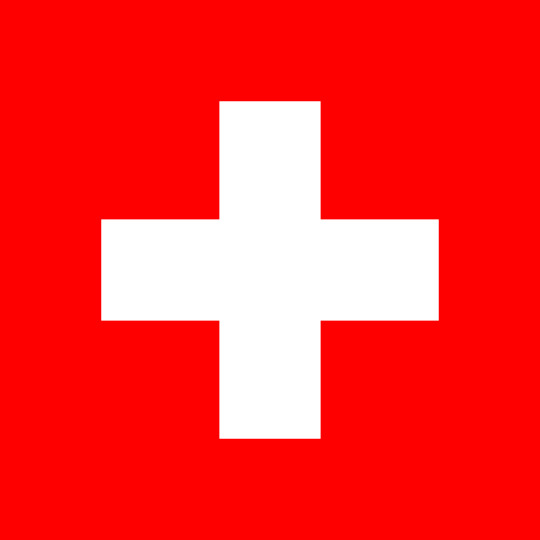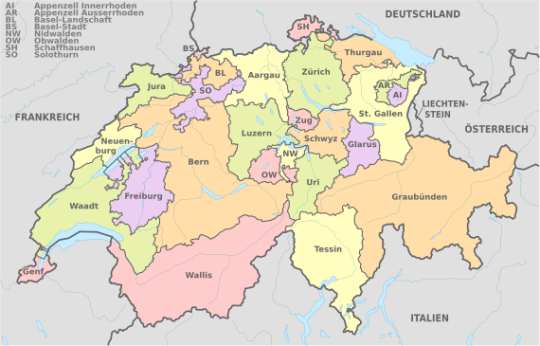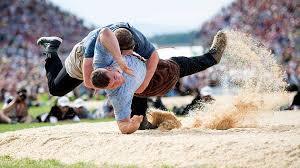#Proscht is the Swiss German for cheers
Text
Schwarzbär!!! : ep149
With enough lighter fluid, even the greenest wood will burn. The eurotrash climbers in the next campsite saw us return from the grocery store in the Ferrari and have decided to join us at the campfire in hopes that we’ll share our wine and cheese.
And of course we do.
The eurotrash climbers are young, maybe late teens or twenty at the most, but they’re fit as oxes with fingers thicker than bratwursts, and for their tender young age, they’re good at drinking. We (roughly) planned our food allotment for the week. It’s mostly gourmet charcuterie from Oakville Grocery, supplemented with a mix of ordinary cheeses, breads and crackers that we purchased at the Yosemite store with the intention of having “regular” food for our hikes.
We didn’t plan on feeding four mouths, and it would be perfectly acceptable for Cheyenne to share our “ordinary” hiking groceries with the eurotrash climbers. But Cheyenne knows what it’s like to not have a lot of money (she is after all a waitress) so she’s carried forward the ruse that she’s part of a rich Ferrari driving aristocratic couple, and has generously shared our finest cheeses, olives, figs and crackers.
I should also point out that we are NOT drinking cheap wine either, and we’ve been generously passing the bottles around the campfire. On this camping trip, we’re doing “more than our fair share” to help reduce Henrik’s wine surplus.
In return for her generosity, we’ve been given the gift of entertaining conversation. The eurotrash kids are actually aspiring professional rock climbers. They make just enough money to survive on the road and travel from country to country, climbing the finest crags around the world. They’re here to test their mettle on a route ominously named Lurking Fear, a sturdy 19 pitch, four-day climb located on the far western edge of El Capitan.
They’re an animated couple of young fellows and they take turns standing up to tell “nearly died” stories about bagging snowy peaks in Patagonia and on the fabled Eiger. Their accents are comically Swiss-German and each story ends with “Zat vas a cloze von” with the other kid responding “Proscht!” (which roughly translates to “cheers!”).
About every third story or so, one of the eurotrash kids disappears into the darkness for a few minutes and returns with an armful of dead branches to put on the fire. Cheyenne is uncorking the fourth (or so) bottle of Silver Oak when we hear the kid screaming for his life in the forest behind the campground. He comes running past the campsite in hysterics shouting “Schwarzbär!!! Schwarzbär!!! Schwarzbär!!!” and sends the other eurotrash kid into a panic. They’re both running around in circles making a commotion and Cheyenne falls off of her log laughing so hard that she spills the wine bottle everywhere.
Cheyenne: Help me up.
Me: What’s wrong with those two??
Cheyenne: Hahahaha. I think he stumbled upon a little black bear in the woods.
Me: Oh, hahaha Schwarzbär!
The commotion causes a couple of the older, wiser campers to take notice, and indeed there are a bright pair of eyes shining back at us from the dark forest. It’s a medium size black bear hoping to scavenge a little food from the campsite. Aside from the damage to automobiles, Yosemite bears are harmless critters. With a flashlight and a couple of sticks, the older climbers shoo away the bear without drama or fanfare. However, we won’t see our heroic young Swiss climbing team again until morning.
0 notes
Text
Switzerland - the heart of Europe
Herzlich willkomme ide Schwiiz!
Bienvenue en Suisse!
Benvenuti in Svizzera!
Bainvegni en Svizra!

Source: https://de.wikipedia.org/wiki/Fahne_und_Wappen_der_Schweiz
Facts and Figures about Switzerland
Located in the heart of Europe, Switzerland was founded on 8/1/1291, which is also the national holiday, which is celebrated every year. Switzerland has about 8 million inhabitants, who live in 26 cantons (3 half-cantons) and speak 4 national languages,
Swiss German in: Zurich, Bern, Aargau, Schaffhausen, Nidwalden, Obwalden, Appenzell Ausserrhoden, Appenzell Innerrhoden, Schaffhausen, Basel-Stadt, Basel-Landschaft, Solothurn, St. Gallen, Thurgau, Schwyz, Glarus, Uri, Grisons, Lucerne, Zug
French in: Valais, Jura, Vaud, Geneva, Fribourg, Neuchâtel
Italian in: Ticino
Romansh in: Grison/Ticino

Source: https://de.wikipedia.org/wiki/Kanton_(Schweiz)

Source: https://www.watson.ch/populärkultur/watson-leser%20empfehlen/132671545-europa-aus-schweizer-sicht-boese-boese-boese-boese-boese
Good to know about Switzerland:
Switzerland has the advantage that it is a very small country and can therefore very well be included in a european trip. However, one must be aware of the high price level and therefore plan the trip in advance as far as possible. Current exchange rate (1 AUD = 0.75 CHF).
Nevertheless, you should not miss the diversity of small Switzerland. You can reach from the big city to the smallest farming village in a few hours. After skiing in summer you can cool off in the mountain lake and enjoy a great hike the next day.
Culture
As the Swiss people speak 4 languages, the culture is almost the same but the habits varies from canton to canton. The swiss are known for their organised and strict adherence to a lot of social rules for daily life. There are a lot of folk festivals celebrated in a lot of cantons, for instance: carnival & “Schwingfest” (see picture).

Source: https://www.focus.de/sport/mehrsport/schwingfest-in-estavayer-die-verrueckte-schwinger-party-der-schweizer_id_5871577.html
Entry requirements:
If you want to travel to Switzerland, please make sure you have prepared your travel documents:
The travel document is required for a short-term stay of a maximum of 90 days per reference period of 180 days:
- are still valid at least three months after the planned departure from Switzerland and
- must have been issued within the previous ten years.
To check if you need a visa, you can look here.
https://www.sem.admin.ch/sem/en/home/publiservice/weisungen-kreisschreiben/visa/liste1_staatsangehoerigkeit.html
To get a little idea, I have listed some helpful words here:
Grüezi – hello
Wie goots Ihne? – How are you?
Uf Widerluege – Goodbye
Ich heisse … – My name is…
Danke – Thank you
Proscht! – Cheers!
Fröit mi – Pleased to meet you
Es duet mr leid – Sorry
Entschuldigung – Excuse me
Ja – Yes
12 notes
·
View notes
Text
Copy-pasted from Wikipedia
Selected examples of toasts worldwide:
Albanian: "Gëzuar" (enjoy)
Afrikaans: “Gesondheid”, "Tjorts", or “Tjeers” (to good health, cheers, or bottoms up!)
Amharic language (Ethiopia): "Le'tenachin!" (to our health)
Arabic: "بصحتك" (be ṣaḥtak, for your health)
Armenian: "Կենաց" or "Կենացդ" (kenats/genats or kenatst/genatst, "to life" or "to your life")
Australian English: Cheers mate! (to your happiness my friend)
Basque: "Topa!" (toast)
Belarusian: "Будзьма!" (budzma, may we live!)
Bosnian: "Nazdravlje" (to health) or "Živjeli" (live!)
Bulgarian: "Наздраве" (nazdrave, to health)
Cantonese: "飲杯" (yám būi, lit. "drink the glass", similar to "bottoms up" in English)
Chinese (Mandarin): "干杯" (gān bēi, lit. "Empty the glass", similar to "bottoms up" in English)
Cornish: "Yeghes da!" (Cheers!)
Croatian: "Živjeli" (live!), "Nazdravlje" (to health)
Czech: "Na zdraví" (to health)
Danish: "Skål" (lit. "bowl", refers to older drinking vessels)
Dutch: "Proost" (from Latin prosit "may it be good" (i.e., for you)), or "(op je) gezondheid" ((to your) health); in Belgium: schol (from Scandinavian) or santé (from the French).
English: "Cheers", "Bottom's up", "Chin-chin"
Esperanto: "Je via sano!" (to your health)
Estonian: "Terviseks" (for the health) or "proosit" (from German "Prost")
Filipino: "Mabuhay" (long live)
Finnish: "Kippis", "Pohjanmaan kautta", or "Hölökyn kölökyn" (in Savonian dialects)
French: "Tchin tchin" or "Santé" (health) or "cul sec" (lit. "dry bottom", to drink the whole glass in one go)
Galician: "Saude" (Good health)
Georgian: "გაუმარჯოს!" (Gaumarjos!) (Victory!)
German: "Prost", "Prosit", from Latin prosit (may it be good (i.e., for you)) or "Zum Wohl" (to health)
Greek: "Εις υγείαν" (is iyían), "στην υγειά σου/μας", "γειά" (for health) or "Εβίβα" (eviva, from Italian evviva, "long life!")
Hebrew: "לחיים" ("L'Chayyim") (to life, traditional Jewish toast)
Hindi: "अच्छी सेहत" (achchee sehat, "good health")
Hokkien/Taiwanese: 乾杯 (kan-poe/kan-pe, "empty the glass") or (lim) hō͘ ta
Hungarian: "Egészségünkre" (for our health), more commonly "Egészségedre" [ˈɛgeːʃːeːgɛdrɛ] (to your health), "Fenékig" (lit. "to the bottom", similar to "bottoms up" in English)
Icelandic: "Skál" (lit. "bowl", referring to older drinking vessels)
Irish: "Sláinte" (health)
Italian: "Cin Cin" or "Salute" (health)
Japanese: "乾杯" (kanpai, lit. "Empty the glass", similar to "bottoms up" in English)
Korean: "건배" (geonbae, lit. "Empty the glass", similar to "bottoms up" in English)
Latin: "Prosit" or "Propino"
Latvian: "Priekā" (to joy)
Lithuanian: "Į sveikatą" (to health)
Macedonian: "На здравје" (na zdravje, to health)
Maltese: "Saħħa" (health)
Manx: "Slaynt" (health) or "Slaynt vie" (good health)
Maori (NZ): "Mauri ora" (to life)
Marathi: "Chang bhala" (may it be good)
Mexican Spanish: "Salud" (to health) or "Saludcita" (to health, diminutive)
Nepali: "तरङ्ग" ("tarang", 'wave')
Norwegian: "Skål" (lit. "bowl", referring to older drinking vessels)
Persian: "به سلامتی" (Be salamati, "good health" )
Polish: "Na zdrowie" (to health), "Twoje zdrowie" (to your health, singular) or "Wasze zdrowie" (to your health, formal and/or plural)
Portuguese: "Tchim-tchim" or "Saúde" (health)
Romanian: "Noroc" (good luck) or "Sănătate" (health)
Russian: "Ваше здоровье!" (Vashe zdorov'ye, to your health) or "Будем здоровы!" (Boodiem zdorovy!, let's be healthy!) or simply "Будем!" (Boodiem!, let's be [healthy]!)
Scottish Gaelic: "Slàinte mhath" (good health)
Serbian: "Uzdravlje" (to health) or "Živeli" (live!)
Slovak: "Na zdravie" (to health)
Slovene: "Na zdravje" (to health)
Spanish/Castilian: "¡Chinchín!" (onomatopoeic for clinking of glasses)[32] or "¡Salud!" (health)
Five Swedish men toasting, sometime around the year 1900.Swedish: "Skål" (lit. "bowl", referring to older drinking vessels[33]); Gutår ("good year", old fashioned, still used in formal settings)
Swiss German: "Proscht" (as in German "Prost") or as diminutive form "Pröschtli"
Thai: "ชัยโย" (chai-yo!, lit. "Hurrah!") or "ชนแก้ว" (chon-kaew, lit. "knock glasses") or "หมดแก้ว" (mod-kaew, lit. "Bottoms up")
Turkish: "Şerefe" (to honor)
Ukrainian: "За здоров'я" or "Ваше здоров'я" (Za zdorovya, to health, or Vashe zdorovya, to your health)[34] or "Будьмо" (Budmo, let us be)
Vietnamese: "Dô" or "dzô" ((take) in)
Welsh: "Iechyd da (i chi)" (Good health (to you))
https://en.wikipedia.org/wiki/Toast_(honor)#Toasts_worldwide
0 notes